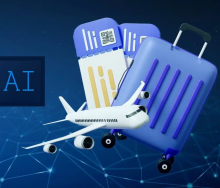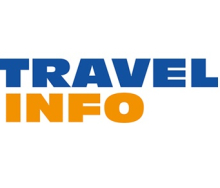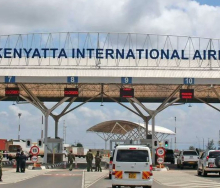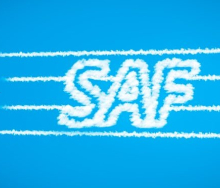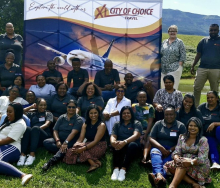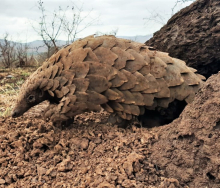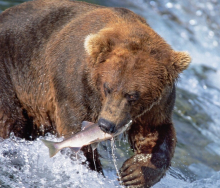WHILE Comair is still
disputing the granting
of FlySafair’s domestic
air service licence, the travel
trade in general has welcomed
the prospect of a new low-cost
carrier in SA’s skies, which
will help drive down air ticket
prices.
FlySafair is set to launch
early in the second half of
this year, says chief financial
officer, Elmar Conradie. He
says the airline will most likely
launch a schedule of six daily
flights between Johannesburg
and Cape Town, building up
to the 10 flight flights a day it
originally planned to operate
last year. Initially, booking will
only be possible on FlySafair’s
website, but Elmar says the
airline is looking at GDS
options.
“A new LCC entrant will
be a welcome relief to the
domestic traveller, especially
in the leisure sector,” says
Eric Sakawsky, Flight Centre’s
gm of corporate. He adds that
increased competition should
see a significant reduction
in domestic airfares making
travel more affordable in a
tough economic client. “This
will certainly help stimulate
travel demand.”
Sean Hough, ceo of
Pentravel, says: “Competition
is important and we
need the capacity in high
season. Return fares from
Johannesburg to Cape Town at
any peak are between R6 500
and R8 000 in economy class,
so there is an opportunity for
anyone to win on price.”
Chris Zweigenthal, ceo of
Aasa, says the industry and
market has been expecting
the launch of a new LCC
for some time. “FlySafair
will enter a very competitive
market and one would expect
a lot of interest in the new
airline from consumers with
the expectation of lower fares
and a new flight offering. I am
sure that the existing airlines
will respond. The appearance
of the new entrant, FlySafair,
which is also an Aasa member,
is welcomed and we wish
them well.”
Garth Wolff, ceo of eTravel,
agrees that there is enough
demand to warrant a new
player in the market, as the
current flights are often full.
“The question is whether the
new entrant has the aircraft
that will be as efficient as the
current market players. This
will play a role in the long-term
viability,” he says.
But Jonathan Gerber,
director at TAG Travel, isn’t
convinced. “The market is not
big enough to sustain SAA,
Mango, BA, kulula, SAX, SA
Airlink, FlySafair, etc. They fly
old planes that guzzle gas
and then they try and sell at
reduced rates? That doesn’t
sound like a viable business
model.”
He adds that because the
consumer is price sensitive,
FlySafair will get a fair share
of customers. “If the price
is right people will fly. The
consumer, however, will get
caught at some stage and
then cry foul when the airline
shuts down over a long
weekend or a busy travel time.
But don’t worry, we travel
agents will be there to pick up
the pieces,” says Jonathan.
Elmar doesn’t think
FlySafair’s grounding last
year will dissuade people
from booking flights on the
airline. “We believe the
way we handled the whole
situation last year will probably
strengthen our position in
the market. We refunded all
tickets within two or three days
and passengers were offered
tickets on Comair,” he says.
Eric says although travellers
will naturally be sceptical of
any new entrant because
of the turbulent history SA
has experienced with local
airlines, he believes FlySafair
could be a serious contender
in the LCC space in the next
few years. “If we look at the
last 10 years we have seen
Nationwide, 1time, Velvet Sky,
Skywise and the taxi operator
Santaco either shutting their
doors or failing to open them
in the first place. Safair has
been a reputable aviation
company for many years.
Granted, it hasn’t operated
as an LCC but it has modern
aircraft, a licence to operate
and, importantly, a team
of very capable individuals
operating it,” he says.
Meanwhile, Comair has
requested that the Air
Services Licensing Council
(ASLC) provide reasons for
dismissing its objections
as well as the decision to
grant the licence to FlySafair.
“Once the reasons have been
disclosed to Comair we will
consult with our legal team
whether sufficient grounds
exist to take the decision of
the ASLC on review in the High
Court,” says Erik Venter, ceo
of Comair.
Comair’s objections are
based on the “opaque nature
of the new shareholding
structure of Safair”.
NdizaSafair owns 25,14%
of FlySafair; ASL Aviation
Group 25%; and the Safair
Investment trust 49,86%, as
part of a management buyout
(the beneficiaries being
Elmar; ceo, Dave Andrew and
director, Wimpie Davidson).
“We can’t comment on what
Comair will or will not do… We
can’t see on what basis they
would challenge the licence
though,” says Elmar.
